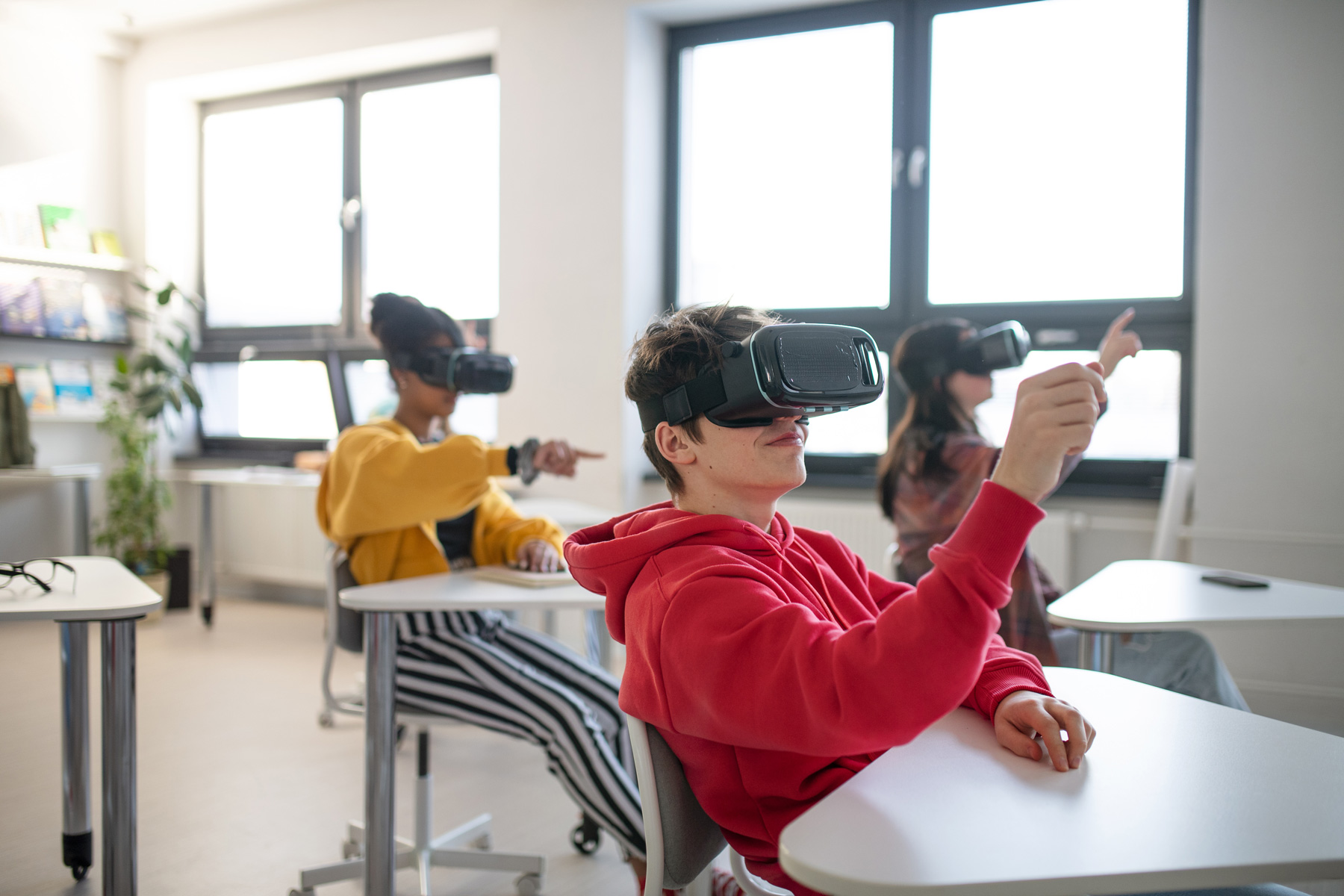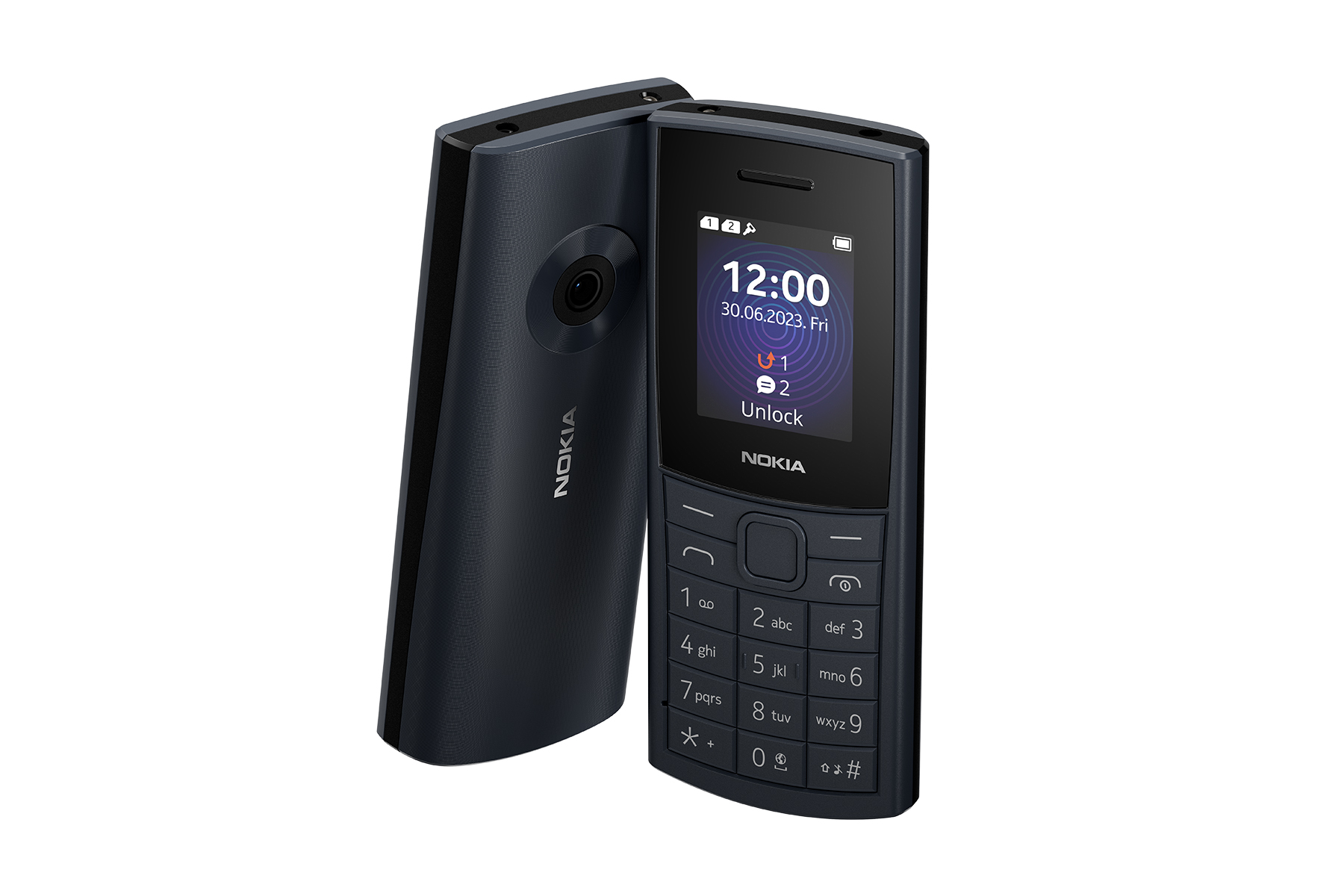Is technology helping or hindering your child's education? How much of a role should it have in schools? We asked educational experts to weigh in on the debate.
People of a certain age may imagine a classroom as having picture textbooks, pencils, a chalkboard and duster, and perhaps a battered TV on wheels.
But the modern classroom is anything but. Increasingly, pupils and teachers use smartphones, smartboards and even smart tables to animate the learning experience. Apps such as ClassDojo enable parents to follow the behaviour and achievements of their offspring. And back at home, the learning can continue on gamified apps like Atom Learning.
British schools spend around £900 million on technology each year, while the UK has the largest ‘ed tech’ (that’s education technology) sector in Europe. Its promise is grand: artifical intelligence (AI) could save teachers hours of planning and marking time, create materials that are bespoke to each child’s learning style and level, and equip children with the digital skills they will need in the future economy.
But is it living up to the hype?
The majority of teachers believe so. According to the UK-wide Education Technology survey, 88% of heads, and 84% of teachers, said that technology had or would contribute to improved pupil attainment.
A 2022 whitepaper from SMART Technologies suggested that the UK education system is a world-leader when it comes to adopting and using technology in the classroom. As former schools minister Jim Knight observed: “While the pandemic has changed the day-to-day execution of teaching and learning across the world, it also accelerated the evolution of technology adoption, curriculum, and other key elements of learning.”
ChatGPT: What impact could it and other AI bots have on our kids’ learning?
The artificial intelligence chatbot ChatGPT, created by OpenAI, has been grabbing headlines of late, but will it be a good or bad thing for children's education?
The study found the effect of this to be overwhelmingly positive: 84% of schools reported ‘enhanced student preparation’, while 76% are meeting their teaching and learning goals, compared to a global average of 68%.
“It’s clear from the data that technology use in the classroom is advocated not just by the schools themselves, but among parents and students, too,” said Giancarlo Brotto, Global Education Advisor at SMART.
There is some nuance though, says Prof Beng Huat See of Durham University’s School of Education: “The evidence is clear: edtech can support learning, but it is no better than effective teaching or other education programmes not involving technology.”
She points out that much of the research so far conducted on edtech’s impact is based on teachers’ and pupils’ impressions of the impact it is having, rather than any objective measurement.
“And most evaluations of the technology are conducted by the edtech developers themselves, often with no comparison group.”
The smart way to use ed tech
In 2020, the consultancy McKinsey & Co. delved into global data, in order to establish the impact that edtech is having on education. Its findings were fascinating. Some tech can indeed help. For example, they found that the use of projectors with internet-connected computers in the classroom is correlated with nearly a grade-level-better performance. But other tech may actually damage learning. Students who use laptops and tablets in the classroom appear to have worse results than those who do not.
How Augmented Reality helps picture books tell the whole story
AR-enhanced books can help engage neurodiverse kids, while also broadening ethnic representation. If you're sitting comfortably, then we can begin.
It also matters who has control over the device. Around the world, McKinsey found, reading scores are best only when the teacher is using a device. They found some benefits when both teacher and students used digital devices in science lessons, but exclusive use of devices by students was always associated with significantly lower outcomes.
McKinsey’s conclusion is that technology has to be used carefully and correctly in order to live up to its promise of enhancing classroom learning. Used the wrong way, and it can be a damaging distraction.
A good teacher is priceless
“Many of the attributes that make good teachers great are the very things that AI or other technology fails to emulate,” the study’s authors wrote.
“Inspiring students, building positive school and class climates, resolving conflicts, creating connection and belonging, seeing the world from the perspective of individual students, and mentoring and coaching students.
“These things represent the heart of a teacher’s work and cannot – and should not – be automated.”
Will your child experience 'learning loss' this summer?
Worried about your kids forgetting what they've learned before the long summer break? Fear not, our experts are on hand with advice and recommendations on how to keep their synpases firing.
Prof Beng Huat See agrees. Her recent paper – Is technology always helpful? – concludes that: “We should apply the same rigour and care in education research as we do in medicine.
“Large-scale Stage 3 clinical tests on human subjects are necessary before medical products are administered to the population.”
“Although children do not die from using poorly conceived education technology, their one shot in education and life chances can be damaged if we do not use well-tested programmes,” she explains.
For Prof Beng Huat See, the bottom line is clear: “EdTech cannot replace effective teachers.”
Stay up-to-date with the very latest news from Vodafone by following us on Twitter and signing up for News Centre website notifications.

![Young woman waiting for job interview indoors [Adobe Stock] stock image of a young woman waiting for job interview indoors](https://www.vodafone.co.uk/newscentre/app/uploads/2024/06/2-Young-woman-waiting-for-job-interview-indoorsAdobe-Stock.jpg)

![black and white photo of a girl's face with smoke [Adobe Stock] an AI-generated stock image of a girl's face partially covered in smoke](https://www.vodafone.co.uk/newscentre/app/uploads/2024/05/black-and-white-photo-of-a-girls-face-with-smoke-Adobe-Stock.jpg)

![girl smiling confident voting at electoral college [Adobe Stock] stock photo of a girl smiling while confidently voting at a mock election](https://www.vodafone.co.uk/newscentre/app/uploads/2024/05/girl-smiling-confident-voting-at-electoral-college-Adobe-Stock.jpg)




![Portrait of school age boy sitting at kitchen table do not want to eat[Adobe Stock] stock photo of a young boy sitting at a kitchen table, refusing to eat the food in front of him](https://www.vodafone.co.uk/newscentre/app/uploads/2024/03/Portrait-of-school-age-boy-sitting-at-kitchen-table-do-not-want-to-eatAdobe-Stock.jpg)